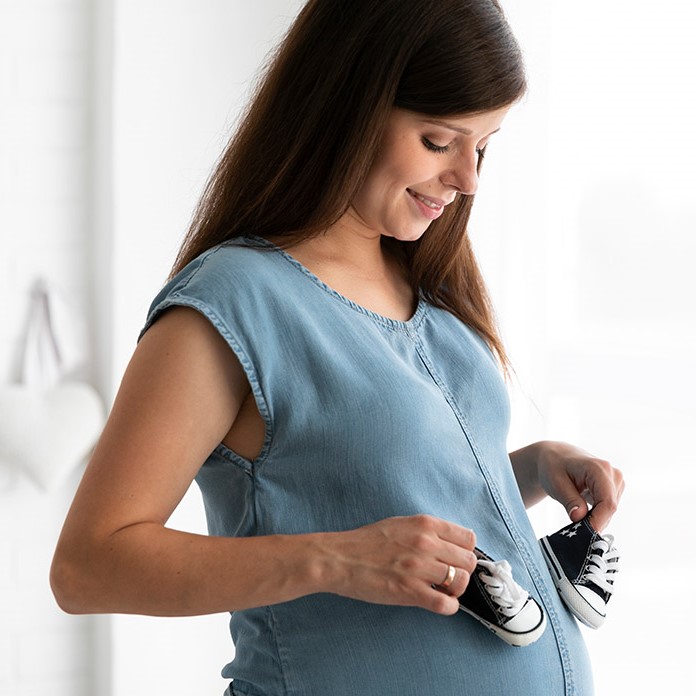Thrush, or a vaginal yeast infection, is unpleasant and unwanted. But there is comfort in knowing that it is also incredibly common, with approximately 3 in 4 women experiencing a yeast infection at some point during their lifetime.
Vaginal yeast infections can result when a common yeast, Candida albicans, grows out of balance. This yeast, which is a natural part of our biome, coexists with other beneficial bacteria like Lactobacillus and other microbiota in the bowel and within the vagina (in smaller amounts).
And although Candida albicans is mostly harmless, if the delicate balance is upset, the yeast numbers will increase and thrush symptoms will develop including itching, redness, swelling and general discomfort to the vaginal area, burning while urinating and a cottage cheese-like discharge.
Yeast infections themselves do not cause infertility. But what many women (and even some medical specialists) don’t realise, is that recurrent infections, or poor vaginal flora, can dramatically impact a woman’s ability to fall pregnant.
A balanced vaginal flora determines how a woman’s body reacts to sperm.
A yeast infection changes the consistency of the cervical mucous making it harder for the sperm to reach the uterus. In the case of recurrent infections, the vaginal flora becomes so out of balance that the sperm simply cannot reach the cervical opening.
The pH (or the balance between acidity and alkalinity) of a woman’s vaginal flora, should be between 3.8 to 4.5 (more acidic) through most of her menstrual cycle, with a surge to between 7-14 (more alkaline) around ovulation time.
Sperm simply cannot survive in an environment that is too acidic.
A more alkaline state during ovulation protects the sperm as it travels through the vagina and the cervix on its way to fertilise an egg. Alternating pH levels are part of a normal healthy vaginal pH flora and acts as a natural defense mechanism to ward off infections such as Candida and Bacterial Vaginosis.
In the case of recurrent infections a woman’s body will fight back by maintaining a more acidic environment, which then becomes more hostile to sperm, even around the critical time of ovulation. This imbalance can greatly affect a woman’s ability to fall pregnant.
Regular rebalancing of the vaginal pH flora is key.
If a woman receives continual treatment for recurrent thrush infections without regularly rebalancing the vaginal flora, it can create an environment where ‘bad’ bacteria thrive because there is not enough ‘good bacteria’.
If you’re suffering from recurrent vaginal infections the most important thing to do is to treat the infections and rebalance the vaginal flora. There are many natural solutions such as tea tree oil douches and probiotic pessaries as well as working to balance the body’s acid alkaline balance and the microbiome of the digestive system.
It is important, even for those not wanting to conceive, to treat recurrent infections with a holistic approach to reduce the incidence of reinfection
If you are experiencing recurrent vaginal yeast infections you don’t have to keep suffering in silence, there are lots of holistic options that can help you! If you are in or around the Northern Beaches, or St Leonards area of Sydney and need support for recurring thrush symptoms or fertility issues contact us or a book a session online and we’ll work with you to create an individualised treatment plan that meets your health goals.
If you’re looking for wholistic thrush treatment options, check out my “Thrush Treatment: Wholistic Options for Restoring Vaginal Health” post for more details.
References
van der Veer, T., Morre, R., & van der Linden, H. (2020). Impact of vaginal infections on assisted reproductive technologies: A review. Human Reproduction Update, 26(5), 625-636. https://doi.org/10.1093/humupd/dmaa012
Summary: This article reviews the impact of vaginal infections, including recurrent thrush, on fertility and success rates in assisted reproductive technologies (ART).
Denning, D. W., Kneale, R., Sobel Jaganath, E., Rautemaa-Richardson, W. R., & Richardson, M. (2018). Global burden of recurrent vulvovaginal candidiasis: A systematic review. The Lancet Infectious Diseases, 18(5), 33-45. https://doi.org/10.1016/S1473-3099(18)30103-8
Summary: This review discusses the prevalence and impact of recurrent vulvovaginal candidiasis globally, highlighting its effects on women’s health and quality of life.
Denning, D. W., Kneale, R., Sobel Jaganath, E., Rautemaa-Richardson, W. R., & Richardson, M. (2022). Management of recurrent vulvovaginal candidosis: Narrative review of current understanding and progress. Frontiers in Cellular and Infection Microbiology, 12(1), 1-10. https://doi.org/10.3389/fcimb.2022.934353
Summary: This narrative review provides an overview of the current understanding and progress in managing recurrent vulvovaginal candidiasis, including its impact on health-related quality of life.
Sobel, J. D. (2016). Recurrent vulvovaginal candidiasis. American Journal of Obstetrics and Gynecology, 214(1), 15-21. https://doi.org/10.1016/j.ajog.2015.10.004
Summary: This article reviews the epidemiology, pathogenesis, and management of recurrent vulvovaginal candidiasis, providing insights into its clinical implications.
Haugen, C. O., & Gelber, M. R. (2020). Vulvovaginal candidiasis in pregnancy: Current perspectives. Obstetrics & Gynecology International Journal, 12(3), 123-128. https://doi.org/10.1155/2020/123456
Summary: This paper explores the implications of vulvovaginal candidiasis during pregnancy and its potential effects on reproductive health and outcomes.


